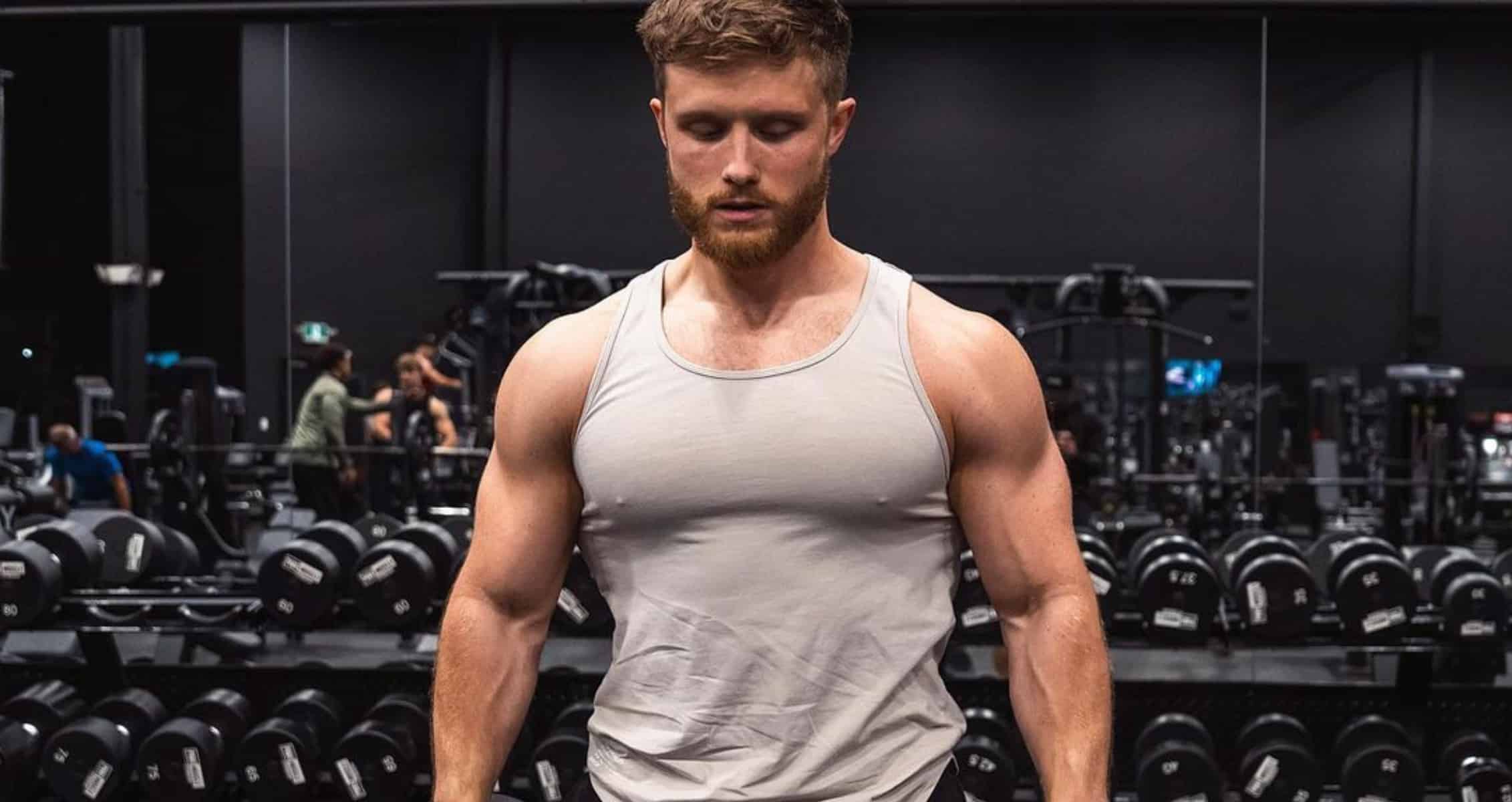Jeff Nippard continues to give advice on building muscle and losing fat.
Jeff Nippard has dabbled in both bodybuilding and powerlifting over the course of his career. He has built a large following on social media, where he can share his knowledge and wisdom on all things muscle building. Now, he is sharing different tips on what to avoid when it comes to nutrition.
When it comes to working hard, looking to the pros and those who have gone before us is a great way to boost all our gains. They’ve done it before and are living proof of what can happen when you grind in the gym. So many websites and influencers claim to know exactly how to get a massive and shredded physique but at the end of the day, why not look to bodybuilding, powerlifting, and athletic legends for that sought after advice.
Jeff Nippard is a pro that can give different advice when it comes to building muscle and losing fat.

Jeff Nippard Discusses Different Nutrition Mistakes
During a recent YouTube video, Nippard spoke on some mistakes and thoughts around fitness when it comes to nutrition. There are many methods that gym goers use in order to better their physiques. Nippard is here to say what should be avoided.
Force Feeding Does Not Equal Muscle Building
Bodybuilders and powerlifters share different diet plans showing off some insane intakes of calories. Because of this, the idea of adding extra calories has been linked to muscle building. This might be a factor on some level but it is not a fool-proof method.
“A lot of people see pro bodybuilders eating 5000-plus calorie diets and assume that if they also want to get big, they need to also eat big…So it’s hard to know if their results are coming from the fact that they’re eating big to get big or some combination of those other factors,” Nippard said.
Nippard noted that taking in a small amount of calories can also help gaining lean muscle mass. Also, a small amount of fat. At the same time, a large intake of calories leads to a higher amount of fat gain, while also building muscle.
“Your diet permits muscle growth. It does not cause muscle growth to occur. You can’t force feed muscle growth. Training is what tells the muscles to grow.”
Supplements Are Not Magic
Jeff Nippard moved onto discuss different supplements and what they are used for. He believes in supplements and did not discourage lifters to cut them out but believes that they are not magic.
“Creatine leads a lot of new lifters to think they’re going to notice a massive steroid-like boost from it. In reality, most studies show that taking creatine should result in roughly two to three pounds increase in lean mass,” Nippard said.
Nippard cited many studies during this conversation. Using some of these, he reiterated that the gain from using creatine is around 1.1kg to 1.4 kg. Along with creatine, Nippard mentioned caffeine and protein. He takes all three supplements and will continue to do so. At the same time, he admits that there is no magic when it comes to putting on muscle.
“I personally take all three of these supplements and I’d recommend them to any serious lifter that can budget them. But as you go further and further down the list, the supplements get less and less promising,” Nippard said.
View this post on Instagram
Training Beats A High-Protein Diet
Protein is one of the most important factors in building muscle. Many preach the importance of taking the supplement following a workout and incorporating more foods high in protein on a daily basis. Nippard has been a fan of high-protein diets but now believes training trumps all.
“Research shows that the effect of protein on muscle growth is magnitudes smaller than the effect of training.”
Nippard broke down a target when it comes to protein intake when building muscle. This comes out to 0.7-1 gram of protein for every pound of body weight. Again, this is not saying to cut out protein but Nippard believes that training is the most important aspect when putting on muscle.
Eating protein gives these short-lived blips in muscle protein synthesis while training causes this long and prolonged elevation that’s ultimately driving your growth.”
Meal Frequency
How many meals should you eat? How much should you eat at one time? Is intermittent fasting a benefit? There are many questions when it comes to meal frequency and this causes many to misunderstand. Jeff Nippard believes that people have to do what they can in order to keep their diet on track.
“It is very important that people not grind through eating six to eight meals a day just because it is supposed to speed up your metabolism. It doesn’t. And why people not struggle sticking to intermittent fasting just because it is supposed to be better at burning belly fat. It isn’t. You just need to find a meal pattern that’ll help you follow through the diet better.”
Jeff Nippard cited a 2020 study that shows one to six meals per day can impact muscle gain. Also, eating one to two meals per day is more effective for fat loss.
For more news and updates, follow Generation Iron on Facebook, Twitter, and Instagram.









